Countlimitf2.click search hijacker is a sort of malware that injects into your PC, and then alters the browser search engine settings in your web browser to one which it wants. It also makes different unwanted changes that may cause personal information leaks, in addition to other malware penetration. In this article, you will see the guide of Countlimitf2.click hijacker clearing in a couple of options, and also the solution of making your web browser just as good as new.
![]()
Countlimitf2.click Info
| Name | Countlimitf2.click extension |
| Type | Browser hijacker1 |
| Short Description | The unwanted software that amends important browser settings without the user’s permission. |
| Symptoms | The Countlimitf2.click hijacker replaces the browser parameters set by the users and replaces these settings with its own values. |
| Distribution Method | Bundling with Freeware or Shareware, misleading pop-up ads produced by adware. |
| Detection Tool | Inspect If Your System Has Been Affected by the Countlimitf2.click hijacker. |
The methods of injection of Countlimitf2.click search hijackers are assorted. Most of them come from the malware spreading via the malvertising or evil-minded web links of various sites. Frequently, your computer might be contaminated with this malware via the trojan-downloader, which is used to distribute different other malware. There is a solitary form of this unwanted program – web browser plugin that can build into any type of web browser which supports the add-on setup2.
You will not likely install this plugin by yourself, because their names are highly uncertain, and also the usefulness is extremely controversial. The “developers” of Countlimitf2.click hijacker normally mention that it can save the .doc/.docx documents from the web pages already to .pdf format, or to download the whole web site on your disk. It is really hard to imagine if somebody can be needed in such features in 2024, when the Web access is not time-limited and every PC is able to start the needed .docx documents at Google Docs.
Nonetheless, besides their impracticality, they can effortlessly be spotted in the Chrome Web Store. Naturally, virus experts sound the alarm relating to such spam into the official source of browser extensions, calling for the Google response – removing these extensions from their site. But they are still not hurrying to take care of that protection issue.
![]()
Is the Countlimitf2.click virus?
At the first blush, you can think that these redirects are just annoying, but not hazardous. As a result of this factor a lot of users are simply playing for time instead of eliminating this malware, obtaining increasingly more possibilities of being contaminated with various other malware, which are far more major than Countlimitf2.click is.
Besides the modified browser search engine or search engine result, you may also see various ads even on those websites that do not have any type of ads on it by default. And you may easily misclick while turning off the ad, and start the downloading of an unfamiliar file, which may be a malware, or a potentially unwanted application, and even ransomware – whatever the maintainers of this hijacker desire.
If your web browser is damaged as a result of the Azorult trojan activity, the system may begin malfunctioning soon – this symptome is one of the most common in case of trojan injection.
![]()
How to remove Countlimitf2.click?
First, let me say several words about prevention the Countlimitf2.click malware penetration. It is really simple to speak about the options of protecting your PC from such irritating things as browser hijackers, however, it is really easy to be caught on this bait perhaps even being a professional user. As it was specified above, this unwanted program can hide after the eye-catching (at the first sight) promotion, or in packs with other adware you may get in dozens of ways. However, despite the usual intricacy of the infiltration techniques, it is very easy to stay clear of the Countlimitf2.click hijacker presence in your system:
- Do not follow the dubious links;
- Restrict the usage of pseudo-free software (one which is offered as free, but has an additional unwanted programs in its pack);
- Leave the habit of clicking advertisements on the web. If you need to buy something, it is better to google it;
- Avoid downloading the files from dubious sources, like forums or file sharing websites.
Preparation before removing Countlimitf2.click.
Before starting the actual uninstall procedure, we recommend that you do the following introductory milestones.
- See to it you have this hand-operated tutorial constantly ready to make use of.
- Execute a back-up of every one of your data, including the kept logins, passwords and other qualifications. You must support your info with a cloud back-up solution and make sure your documents are shielded from any type of sort of loss, even from the most extreme infections.
- Wait till the resilient back-up procedure mores than.
Step 1: Uninstall Countlimitf2.click and related software from Windows
Right here is a method in couple of very easy stages that must have the ability to uninstall most applications. Either you use Windows 10, 8, 7, Vista or XP, these milestones will work well. Moving the app or its folder to the Trash can be a very wrong idea. In case you do that, remnants of the app may remain, and that can cause the unstable performance of your system, malfunctions with the file type associations and other unpleasant behavior. The effective solution to get an app off your device is to remove it manually. To do that:
1. Keep holding the Windows Logo Button and “R” on your keyboard. A Pop-up window will soon arrive.

2. In the field that appeared, type in “appwiz.cpl” -1 and choose OK – 2.
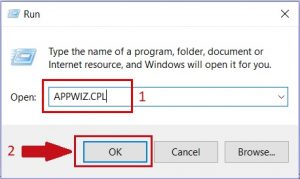
3. This will open a window with all the apps available on the device. Choose the app that you want to get rid of, then choose “Uninstall”
Follow the steps above and you will successfully get rid of most unwanted apps.
Step 2: Get rid of Countlimitf2.click from all your available browsers.
1. Launch Mozilla Firefox. Go to its menu window
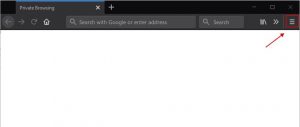
2. Choose the “Add-ons” icon in the menu.
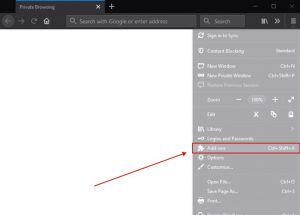
3. Find the unwanted extension and select “Remove“
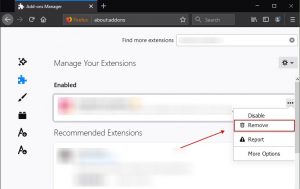
4. Upon deleting the extension, reload Mozilla Firefox, closing it with the help of a red “X” button in the upper right corner and start it again.
1. Launch Google Chrome and go to its drop menu
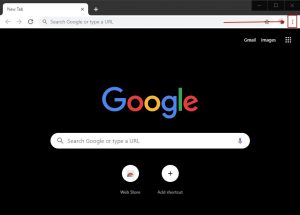
2. Click on “Tools” and then in the extended menu select “Extensions“
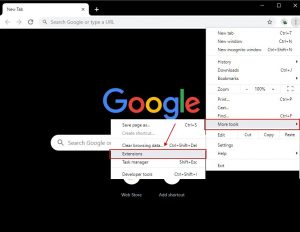
3. In the “Extensions” menu find the unwanted extension and apply the “Remove” button related to it.
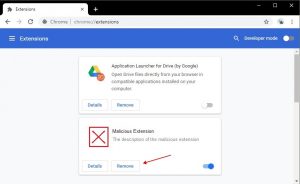
4. As soon as the extension is deleted, reload Google Chrome by closing it by means of the red “X” button at the top right corner and launch it again.
1. Launch Internet Explorer
2. Click on the gear icon marked ‘Tools’ to open the drop menu and choose ‘Manage Add-ons’
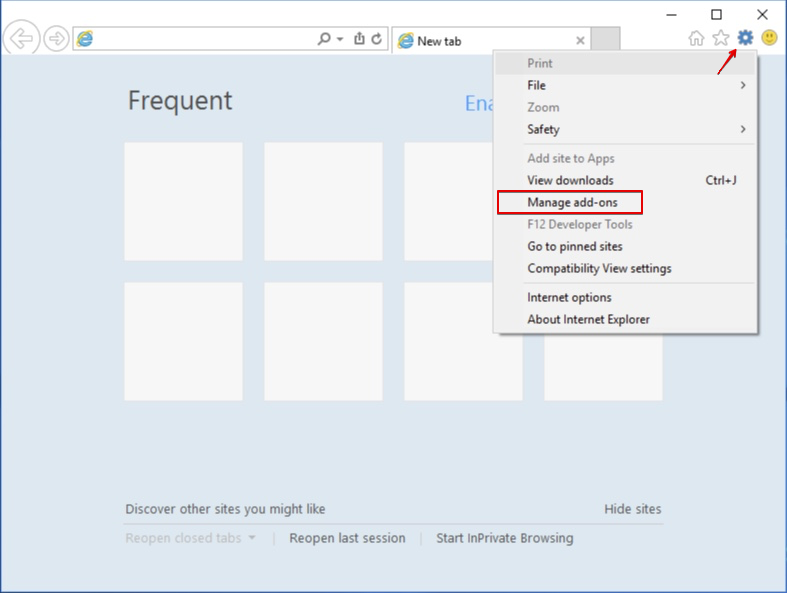
3. In the “Manage Add-ons” window, locate the extension you want to delete and then click “Remove”. A pop-up window will come up to inform you that you are about to delete the selected extension, and some more add-ons might be disabled as well. Leave all the boxes checked, and choose “Remove”.
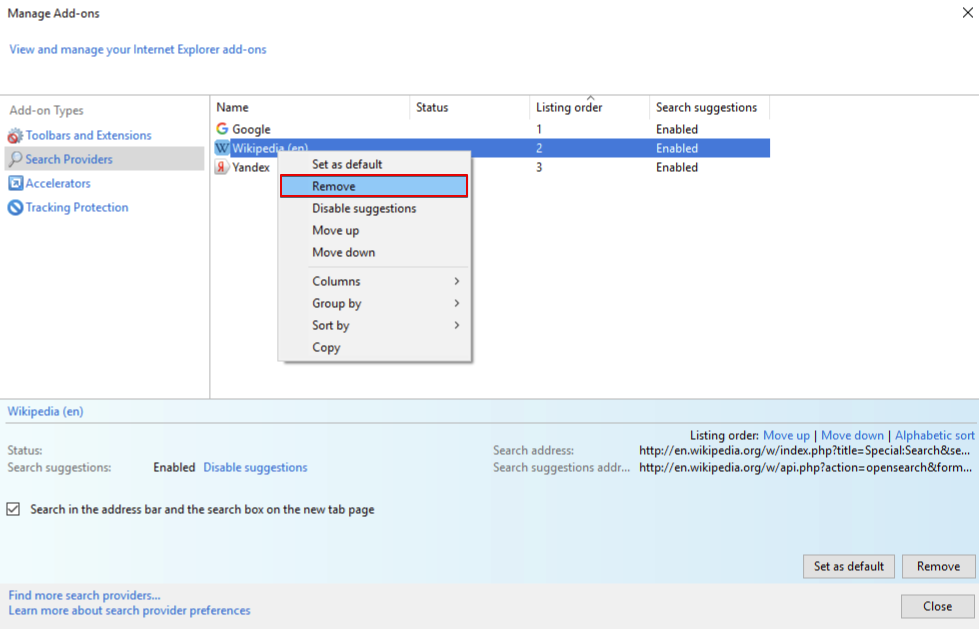
4. Once the unwanted extension is deleted, reload Internet Explorer by shutting it down from the red “X” button located at the top right corner and launch it again.
1. Launch Edge
2. Access the drop menu by clicking on the icon at the top right corner.
3. From the drop menu choose “Extensions”.
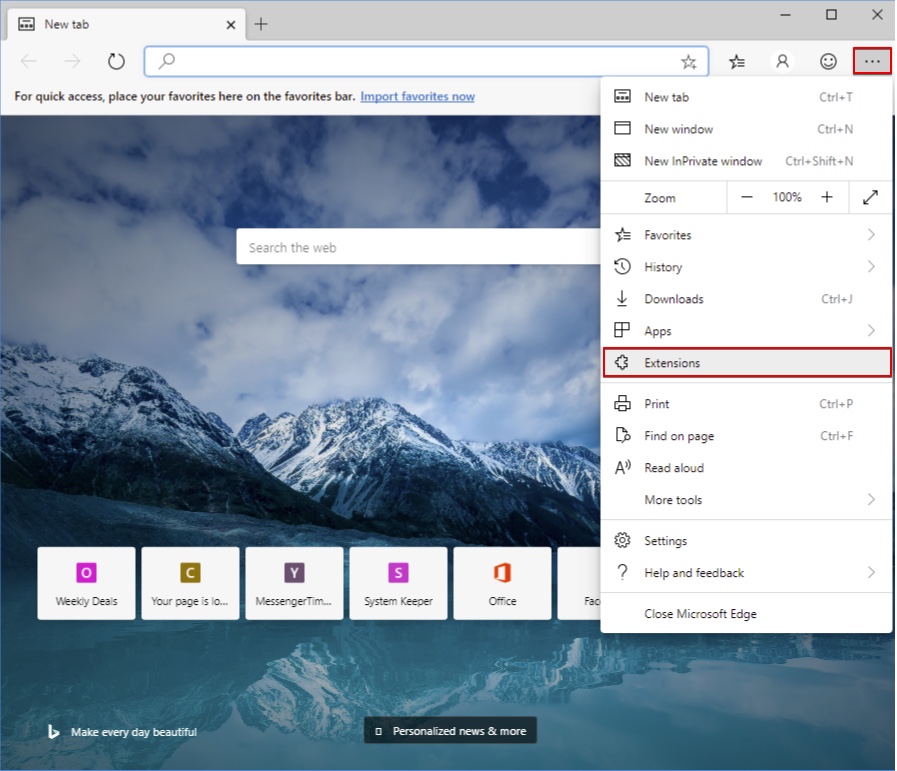
4. Locate the suspected dangerous extension you want to delete and then click on the Remove button.
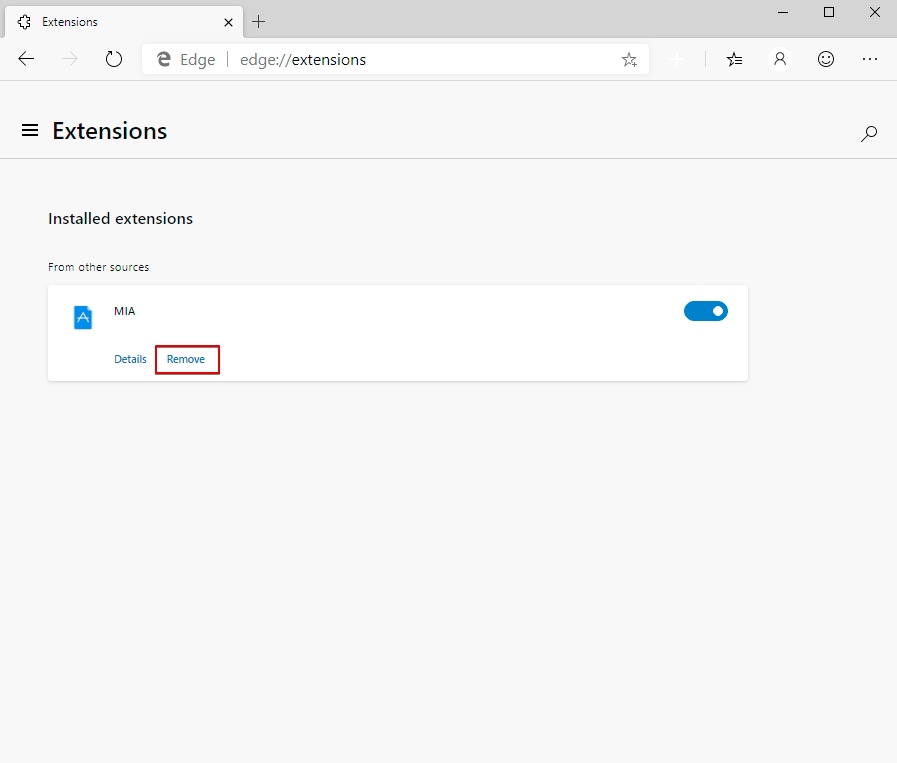
Step 3: Clean any registries that could be added by Countlimitf2.click on your device.
The usually attacked registries of Windows machines are the following:
- HKEY_LOCAL_MACHINE\Software\Microsoft\Windows\CurrentVersion\Run
- HKEY_CURRENT_USER\Software\Microsoft\Windows\CurrentVersion\Run
- HKEY_LOCAL_MACHINE\Software\Microsoft\Windows\CurrentVersion\RunOnce
- HKEY_CURRENT_USER\Software\Microsoft\Windows\CurrentVersion\RunOnce
You can access them by going to the Windows registry editor and getting rid of any values added by Countlimitf2.click. Follow the steps below:
- Start the Run Window command once again, type “regedit” and click OK.
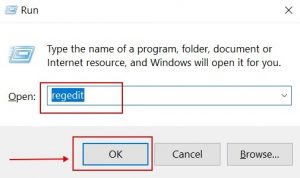
- As soon as you open it, you can freely go to the Run and RunOnce keys, whose locations are displayed above.
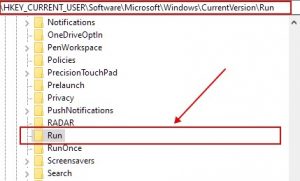
- You can delete the value of the virus by right-clicking on it and deleting it.
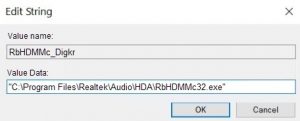
Tip: To locate a virus-created value, you can right-click on it and select “Modify” to find which file it is set to run. If this is the malware file location, delete the value.
Step 4: Scan for Countlimitf2.click with Loaris Trojan Remover
1. Click on the “Download” button to proceed to Loaris Trojan Remover download.
It is recommended to run a scan before purchasing the full version of the software to make sure that the current version of the malware can be detected by Trojan Remover. Click on the corresponding links to check License Agreement, Privacy Policy.
2. Click “Install” to start.
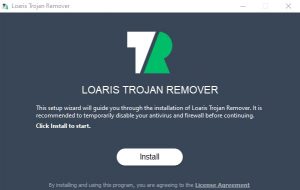
There were 4 scan types suggested:
- Standard Scan.
- Full Scan.
- Custom Scan.
- Removable Scan.
3. After the installed has finished, click on the ‘Scan’ tab. Click on ‘Full Scan’.
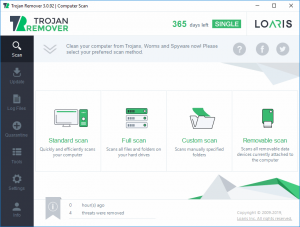
4. Once the scanning is started, Loaris will initiate the thorough analysis of your device and may soon identify specific threats currently slowing down the performance of your system. Make sure to wait until the scanning is completed to let the software fully evaluate the safety of your workstation.
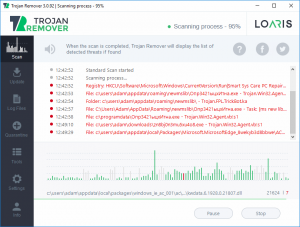
5. After Loaris Trojan Remover has finished scanning your PC for any files of the associated threat and found them, you can try to get them removed automatically and permanently by clicking on the ‘Apply’ button. There were options to move the files to quarantine, ignore or delete them.
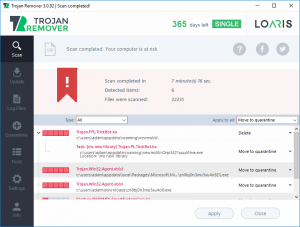
If any threats have been removed, it is highly recommended to restart your PC.
- About browser hijackers on Wikipedia
- Possible danger of free browser extensions






Leave a Comment